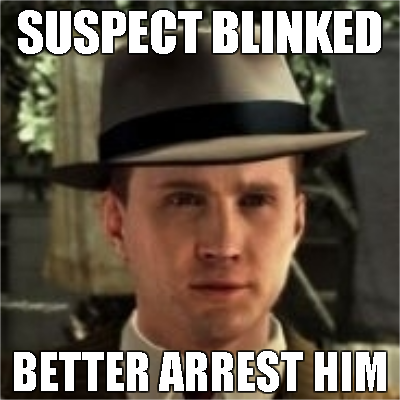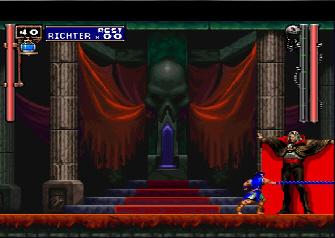You don’t have to look very far nowadays to find a
gamer who would proudly state this claim. In fact, I bet more than a few of you
readers would agree with this to some extent.
As of late, there have even been more than a few figures in the industry
speaking out on this thought from both sides
(for and against)
Some series have been built around compelling storylines (see Metal Gear Solid)
while others have not stopped to explain what is going on at all (i.e. Left 4
Dead). While story games definitely have their place in my heart, I’m here to
argue that writing off games without story is simply foolish. And in some
cases, pushing a story too hard is a major misstep.
Let’s
start by remembering the roots of games. Back in the day, it was uncommon for a
game to give much backstory at all. When you look at a game like the original Legend
of Zelda you got practically no explanation for what was going on or why
you were doing what you were doing(In fact, you probably found more story
details in the manual than you did from the game itself). While this was
probably due to technological limitations and not some ideological artistic
decision by Miyamoto, this greatly contributed to the
mystique of the game. There was a sense
of uncertainty surrounding the land of Hyrule, from the vast uncharted overworld to the enigmatic enemy types. Rather than relying on an intricate
story to draw you into the world of Hyrule, the game relied on exploration and ingenuity
to involve the player in its world.
Remember these?
Nowadays
our technology is far more advanced. We have the ability to create models and
environments that are easily distinguishable and as a result, we now know those weird pancake
monsters who stole your shield repeatedly are actually amorphous blob creatures
called Like Likes. Anyway, this ability to create detailed games not only led to a trend of increasing realism in games (that's one for another day) but a desire to try to tell tales on par with that those coming out of Hollywood. This certainly isn't the fault of the developers in particular. New ground was being tread and it's only natural to draw from other mediums. Either way, some games have done a better job than others when it comes to melding this story element and straddling the line between game and movie. Others have simply shrugged of the trend all together.
Tell me this doesn't make you hungry.
L.A.
Noire is one game that relies heavily on its ability to tell a weaving complex
tale on par with noire films of old. And it does this part very well. As a big fan
of these kinds of films I absolutely loved this game, and I’d highly recommend
it if you’re into such movies as well. This aside, the gameplay leaves much to
be desired. You start out each case (what the levels are called) by exploring a
crime scene. This requires you to wander a crime scene waiting for your
controller to rumble so you can press the action button and investigate. You go
about doing this till you think you've found all the clues. Interview a bro. Drive somewhere else and repeat. Sometimes there are
scripted events to spice things up, but these become routine. The game is also
littered with small distractions and mini-games, but these are mostly
meaningless diversions. Anyway, I’m not here to review the game. It’s just not
all that interesting, and if you aren’t really into the story, it gets lame
very fast. Team Bondi likely spent more time working on the story than they did
coming up with interesting gameplay ideas as the repetitive nature of the game
becomes pretty apparent by the time you’ve reached the end.
Another game that falls short in the
same department is The Witcher 2. The story is totally non-linear and generally
awesome. In itself, the story is enough reason to play this game (and multiple
times at that). But the gameplay is decent at best. Even on normal difficulty,
the game starts out pretty tough, and there is nothing wrong with that. You’re at a pretty large disadvantage going
into every fight, which means you really have to plan out each encounter.
Initially I found this to be very interesting as I learned to master the slew
of situational abilities Geralt has(You are given all 6 of your your abilities right off the bat). The issue comes later in
the game as the difficulty totally drops off. The progression tree ensures that
your character grows and becomes more powerful, yet the enemies never rise to
the challenge. By the end of the game, I was relying on only a few strategies and attacks to get me through fights. This came across to me as some pretty mediocre game
design. And while both of the games I mention feature their high quality stories
as a main selling point (one is inspired by classic film, while the other is an
adaptation of a series of novels), developers should remember they are making
games first and foremost.
Next up
is Gears of War. Now I love these games. I’ve invested weeks of my life into
the multiplayer portions of these games and I’m not afraid to admit this.
But I’m going to tell you a dark secret. I've never played through the Gears 3
campaign. Now I imagine most of you have already closed out of your browser in
disgust but I’m sorry. Not a thing in the world could make me care about Marcus
and Dom's bromances or the locust invasion. The attempt to tell a serious story
in this game comes across a complete joke to me. What amazes me is that Epic
seems to think that people actually care about it. In the months leading up to
the release, I was always amazed by how much Epic talked about the story and
how Gears 3 would offer a satisfying conclusion to the trilogy. I didn't know
that anyone was actually waiting to see what happened to Marcus and the rest of
Delta Squad(I had to look up what they were called). Anyway, no one ever put a
gun to my head and forced me to play through the campaigns, so I guess their
presence doesn’t hurt. It’s just that fact that maybe if Epic had put less time into
planning out the next chapter of Delta Squad’s adventure, Gears 3 might have a
cool new game type, or a better net code. Hell, I’d even settle for a few new
maps or a shiny weapon skin rather than the commonplace display of machismo that is the campaign.
Bros to the end, dawg.
So now
that I've torn up Gears over its less than spectacular story-telling, I figure
I’d mention a game that I think does a pretty good job of integrating story
into the game. When you look at the old Castlevania games, there really isn’t
much going on in the way of story. Like I mentioned earlier, this was just how
NES games were. Later games in the series, began to add to the story bit by
bit, giving the player new reason to hunt down Dracula repeatedly. Castlevania:
Symphony of the Night raises the bar just a tad. It starts out with a flashback
(which you play) to the previous entry that details Dracula’s defeat 5 years
earlier. After this, you’re then put in control of a powerful new character.
For the rest of the game you are filled on your character’s origins (assuming
you hadn’t played previous entries) as well as his intent. All of this is done
through very brief scripted events (coupled with some laughably bad voice
acting) which occur as you venture through the castle. The small portions injected into the game allow the story to be told without bringing the exploring and
undead killin’ to a grinding halt. By the end of the game, chances are that you
will be invested enough to want to hear the pay off. Simply put, this game
tells a simple but interesting story without stunting the gameplay.
Bad voice acting and all, the prologue is great.
If you’re looking for a game that has used the power of current gen consoles in other ways than story-telling than you need look no further than Demon’s Souls. The game is utterly devoid of a compelling storyline. There are some demons and they have souls. You gotta get their souls and get rid of some white fog. That’s about it. Nonetheless, Demon’s Souls is still an amazing game. Instead of using a complex tale to involve the player, it relies on the dark but stunning world, and gameplay that is tight, difficult and fair to keep you playing. Actually, I'd argue that the Souls franchise hold many resemblances to the older Castlevania games in aspects such as enemy behavior, difficulty, and gameplay mechanics. Anyway, Demon’s Souls (and Dark Souls) is a poster child for games that are games first and foremost. From Software clearly spent more time creating an interesting environment for the player to explore and fine tuning the gameplay than they did fleshing out plot details. And their strategy has managed to carve out a nice niche for their game, even in the modern gaming industry where RPGs are either expected to tell a cool story or dish out unending amounts of content.
The first boss is about as tough as he looks
Anyway,
I could go on listing games but I think I’m starting to ramble here (Maybe just
a bit). But I’ll get to the point. Developers shouldn’t feel compelled to stack
up against the films and literature of the day. While story-heavy games are
always brought up to the plate first when it comes time to argue whether or not
games are art, are these really the games that should represent artistic
expression in games? Nassim definitely touched on this a bit in his first blog
so I’ll breeze over it. Anyway, games are one of the most capable mediums when
it comes to expressing ideas due to the fact that they have everything in other
mediums plus the added interactivity. So
why is it that developers strive to imitate and reiterate upon the same things
that films and novels have been able to get across for decades if not centuries?
I feel this is exactly why Bioshock is all too often brought up when discussing games being art. The central idea is delivered in a way that relies on the way we play games or are conditioned by them and this is what makes its story so unique. That’s not to say that every game should be
an analysis of free will, but rather developers should play on the advantages
of the medium more often. Doing this is likely to earn video games more credibility
in the art space than a reiteration of something that has surely already been
done elsewhere. So wrapping it all up, I’ll go back to what I’ve already said
multiple times in this wall of text. Games are games. We shouldn’t sell this
unique medium short by treating them as anything less than that.





3 comments:
Nice post, Arin! I especially liked your LA Noire picture and caption!
Wow. this is a good read. <3 Legend of Zelda. All of them. Wish i had the newer ones though but alas I am broke :P very gj Arin
That's right, if you play any of these two games at the club on Tuesday night, you only pay £1 to play.
Post a Comment